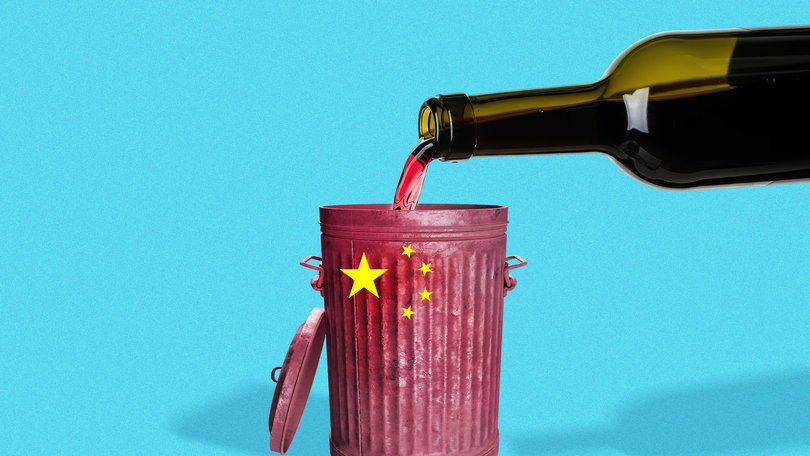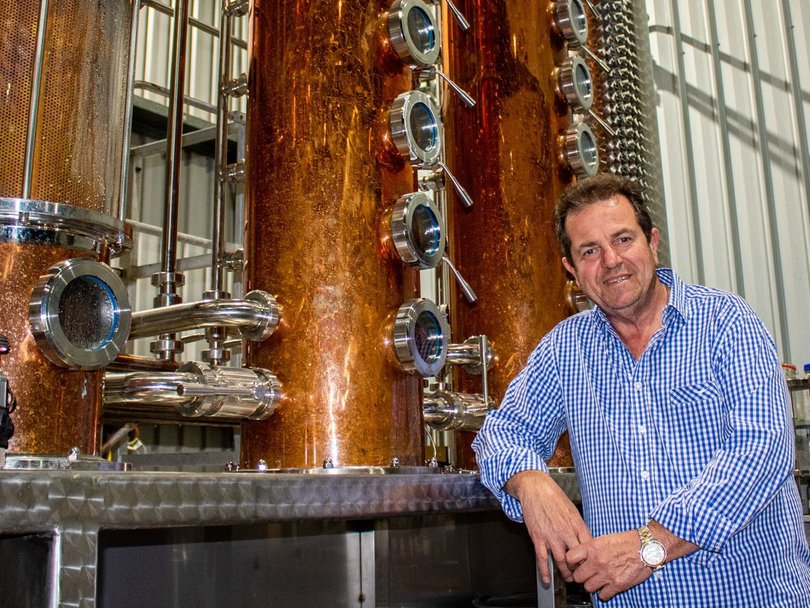Chinese wine drinkers give up on Australian grapes
Shares in the maker of Penfolds wines plunged to the lowest level in a decade on a boycott by Chinese drinkers.

Chinese wine drinkers, once regarded as the great hope of the Australian wine industry, have decided they are no longer in love with grapes from Down Under.
Shares in Penfolds-maker Treasury Wine Estates hit their lowest price in a decade after the company revealed it would miss China sales targets even though Beijing has since lifted those punitive tariffs of up to 200 per cent.
China’s tariffs on Australian wine, imposed in 2020 in retaliation to calls for an inquiry into the origins of COVID, were lifted in March last year.
Sign up to The Nightly's newsletters.
Get the first look at the digital newspaper, curated daily stories and breaking headlines delivered to your inbox.
By continuing you agree to our Terms and Privacy Policy.The wine producer said it could no longer forecast sales to China this financial year because those targets were “unlikely to be achieved”.
“Several initiatives are now being implemented to mitigate the expected impacts in China in F26, including pursuing opportunities to re-allocate product to select customers in other key markets in a manner that is sustainable and minimises the risk of parallel imports back into the China market,” it said.
The news caused Treasury’s share price to plunge by 14.3 per cent on Monday, which was much greater than the broader Australian Securities Exchange’s 0.7 per cent decline by early afternoon trade.

The Treasury Wine Estates share price of $5.98, reached late on Monday afternoon, was the lowest since September 2015, after it also announced a pause on a $200 million share buy-back announced only in August “until there is greater clarity around trading conditions and expectations”.
Moomoo chief executive and chief market strategist Michael McCarthy said Chinese consumers are now wary of Australian wines, making it harder for the likes of Treasury Wine Estates to recapture the enthusiasm that existed before COVID.
“The stock would most likely have fallen anyway. Part of the bans during the previous trade dispute saw the Chinese consumer turn away from Penfolds anyway,” he told The Nightly.
“Re-establishing the brand will be more of a challenge in China because consumers have tended to follow the directives of the government and while those directives have been lifted, that former enthusiasm might not reappear.”
Salena Estate Wines, a family owned winery in South Australia established in 1998, was last year sold to a Chinese company Tianyu Wool, after China’s Covid tariffs caused a collapse in demand.
Former CEO Bob Franchitto said they had little choice but to sell as a result of those Chinese tariffs, which he blamed on former prime minister Scott Morrison.
“In our circumstances, we didn’t have a choice but to have to get out,” he told The Nightly. “We lost our business over that, probably more compliments to Scott Morrison. Otherwise, we probably wouldn’t have had those levies.”
Share market
Australian shares overall barely reacted to Mr Trump’s earlier threats of 100 per cent tariffs on China, which the United States threatened in retaliation at China restricting the exports of rare earths, needed for the likes of smartphones and defence equipment.
The New York S&P 500 had plunged by 2.7 per cent while Hong Kong’s Hang Seng Index was 3 per cent weaker in earlier reaction to the trade spat.
“If 100 per cent tariffs are applied to any reasonable amount of goods and services, it would be a disaster for the global economy,” Mr McCarthy said.
But by the time the Australian market opened, Mr Trump’s more conciliatory message on Truth Social, his personal social media platform, has stopped the losses. He wrote: “Don’t worry China, it will all be fine! Highly respected President Xi just had a bad moment. He doesn’t want Depression for his country, and neither do I. The U.S.A. wants to help China, not hurt it!!! President DJT.”
China’s economy is still showing good signs for Australia, the world’s biggest exporter of iron ore used to make steel.
China, Australia’s biggest trading partner, imported a record 116.33 million tonnes of iron ore in September, up 10.5 per cent from the previous month, official data from China’s customs authority showed.

